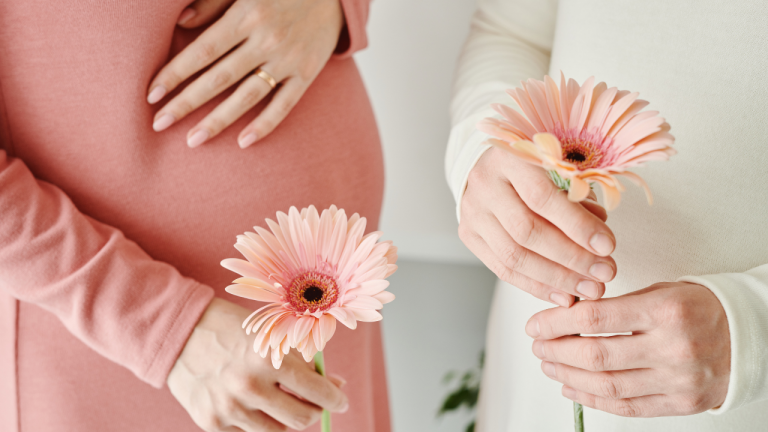Natural Treatment For Leg cramps During Pregnancy

Many expecting mothers have to deal with leg cramps. Nearly 50 percent of all pregnant women experience muscle cramps during pregnancy.
Leg cramps are involuntary contractions of muscles at the back of the calf. They often occur at night, especially in the second and third trimesters. While cramps in the legs are common, some women also have to deal with muscle spasms in the back, abdomen, feet, or hands.
Health experts are still not clear as to why leg cramps are common during pregnancy. But some theories suggest that it may be due to fatigue, the uterus pressing on certain nerves, or decreased circulation in the legs from the pressure of the baby on blood vessels.
pregnancy leg cramps
Leg cramps also may be related to calcium or magnesium deficiency, or dehydration. The chances of leg cramps increase because of contributing factors, such as a substantial increase in weight, swelling in the lower legs and feet, and fatigue.
While it is unpleasant to be woken up in the middle of the night by a sudden painful spasm, there is nothing to worry about. Fortunately, chances are these cramps will disappear after you deliver. In the meantime, you can use some home remedies and make lifestyle changes that can help alleviate the discomfort.
Natural treatment for leg cramps during pregnancy
Here is the top natural treatment for leg cramps during pregnancy.
Walking or Stretching
Nightly stretching before going to sleep reduces the frequency and severity of nocturnal leg cramps in older adults.
Although the study was not done on pregnant women, you can always try stretching your muscles. As soon as you have a leg cramp, stretch your legs and mildly jerk your feet in a fast, repeated fashion. It’ll help you avoid persistent pregnancy leg cramps.
walking or stretching to reduce pregnancy leg cramps
You can also try standing on a hard floor and lifting your toes to stretch the calf muscles and stop the cramping, holding on to something if needed for balance. Then, gently massage the area to relax the tight muscles.
You must try to stretch the muscles of your calves and feet, and make sure to stretch before bed, as well as before and after exercise. Avoid any stretches that require you to lie down on your back.
Also, try to engage in some physical activity immediately. For instance, try to walk around. Walking will cause some pain, but if the pain is bearable, take a slow walk for some time and you will soon feel better.
Taking a walk sends a signal to your brain that your muscles need to contract and then relax. This in turn will ease the tight muscles and provide quick relief from the discomfort.
Ice Pack
For quick relief from the throbbing pain of sudden cramps in the legs, using a cold compress on the sore muscles is very effective.
ice pack to relieve leg cramps during pregnancy
The cold temperature will numb the pain, reduce inflammation and allow the affected muscles to relax. Plus, once the cramp is gone, a cold compress will help reduce soreness by constricting the blood vessels.
Wrap a handful of ice cubes in a thin towel and put it on the affected leg area for 15 minutes at a time. Repeat every 2 hours.
Another option is to take a cold shower as needed to relax sore muscles.
Warm Compress
Applying a warm compress on the area of your leg that is cramping can also help.
The heat from the compress relaxes muscles and helps reduce pain, tightness, or cramping. Also, it promotes increased blood flow and speeds up the healing process.
warm compress to ease pregnancy leg cramps
Place a heating pad over the cramped area. Apply the heat until you feel more comfortable.
Alternatively, soak a towel in warm water, wring out the excess water and place it on the cramped area until the towel cools. Repeat a few times until the pain is gone.
Epsom Salt Soak
An Epsom salt soak is an age-old remedy for leg cramps, whether you are pregnant or not.
The magnesium in Epsom salt promotes muscle relaxation and healing, thereby reducing the symptoms of cramps.
Epsom salt soak to reduce pregnancy leg cramps
Also, this type of bath is an easy way to correct a magnesium deficiency, one of the common causes of cramps during pregnancy. Magnesium is also believed to be a natural stress reducer.
Fill your bathtub with warm water.
Add 2 cups of Epsom salt and stir it thoroughly.
Soak in this bath for 20 minutes.
Enjoy this bath once a week.
If you have heart problems or high blood pressure, avoid an Epsom salt bath.
Massage
Massage is one of the most popular methods to alleviate a cramped muscle and reduce the pain associated with leg cramps.
Massaging the cramped area increases circulation in the tissue, which provides a rush of new fluid to relax the tense muscle. Bear in mind, massage can cause some pain initially, but soon the cramp will be gone.
massage for leg cramps during pregnancy
Apply some warm olive or coconut oil on the cramped area.
Massage the cramped muscle with long strokes until it relaxes.
After the massage, wrap the area with a warm towel and leave it on for a few hours.
Repeat as needed.
It is advised not to do the massage on your own. Get help from your partner, a friend, or a family member. You can also go to a licensed prenatal massage therapist to keep your muscles relaxed.
Apple Cider Vinegar
Apple cider vinegar is another great remedy to soothe away leg cramps during pregnancy. It is rich in minerals like potassium that help reduce the frequency, intensity, and pain of leg cramps.
Plus, it helps control the balance of fluids in the body, thus preventing dehydration, a common cause of leg cramps.
apple cider vinegar to treat leg cramps during pregnancy
It also has alkalizing properties that help reduce pain and inflammation.
For topical use: Add 2 cups of raw, unfiltered apple cider vinegar to lukewarm bathwater. Soak in this water for 15 to 20 minutes once daily to prevent leg cramps.
For consumption: Another option is to add 1 tablespoon of apple cider vinegar to a glass of warm water. You can also add a little honey. Drink this tonic once daily.
Magnesium
Magnesium deficiency is frequently related to leg cramps. In fact, doctors often recommend magnesium for treating muscle cramps in pregnant women.
This mineral is important for muscle health, as it stimulates calcium reuptake that helps maintain strong muscles and prevent cramps.
magnesium for leg cramps during pregnancy
Leg cramps are a common symptom in pregnancy and in patients with low serum levels of magnesium, and a magnesium supplement can be helpful.
If you have a magnesium deficiency, try to get your daily dose of magnesium through a healthy diet.
Some of the best food sources of magnesium are almonds, avocados, bananas, beans, pumpkin seeds, tofu, soy milk, cashews, pecans, walnuts, potatoes with the skin, yogurt, blackstrap molasses, whole grains, and green leafy vegetables.
Also Read This Article, Good sources of magnesium
Potassium
Just like magnesium, a potassium deficiency in the body can contribute to leg cramps. In fact, the mineral potassium is an important factor in the function of the muscles and nerves.
Potassium is an electrolyte that aids the electrical exchanges in the body and prevents cramping by facilitating the effective functioning of the muscles. Plus, potassium aids the absorption of calcium and magnesium.
potassium to treat leg cramps in pregnant women
On the other hand, a low potassium level in the body can not only cause leg cramps but also vomiting, weakness, fatigue, constipation, and an abnormal heart rhythm.
Make sure to get enough potassium in your diet. Good sources of potassium include bananas, dates, apricots, grapes, cabbage, broccoli, oranges, grapefruit, fish, pork, and lamb.
Also Read This, https://www.go-green.info/food/potassium-2/
Water
While it is true that leg cramps can be partly due to increased fluid flow in a pregnant woman’s body, drinking enough water is still a must.
Proper hydration will help the blood flow better and water is important for muscle health, too. When the body is dehydrated, the brain thinks you need to keep in as much water as possible, and therefore the swelling will be more severe.
drink more water to prevent and treat pregnancy leg cramps
So to ensure normal blood flow, keep drinking enough water. It will also help keep the digestive and urinary systems working well.
Drink a minimum of 8 to 10 glasses of water a day to prevent dehydration and cramping. To know whether you are drinking enough water, check the color of your urine. Clear urine signals adequate hydration, while yellowish urine signals inadequate hydration.
Along with water, eat more water-based fruits and vegetables to reduce the chance of dehydration and prevent leg cramps.
Blackstrap Molasses
Blackstrap molasses is full of important nutrients and a great natural treatment for muscle cramps of all types.
Being rich in calcium and potassium, it helps fight these deficiencies, which can cause leg cramps during pregnancy. Both calcium and potassium are important for muscle health.
blackstrap molasses for leg cramps during pregnancy
Also, it is rich in iron and helps fight iron deficiency.
Mix 1 to 2 teaspoons of blackstrap molasses into 1 cup of warm milk.
Drink it daily before going to bed for a few weeks.
Extra Tips
If your leg cramps occur frequently and do not respond to natural treatments, contact your doctor.
Slowly flexing and releasing your feet several times before bed each night can prevent leg cramps at night.
Wear support stockings to bed to alleviate night cramps.
Avoid sitting or standing for long periods of time to reduce the occurrence of cramping.
Try to sit comfortably with your legs elevated, and avoid keeping your legs crossed for a long duration.
Choose proper footwear that offers comfort, support, and utility.
Drink less coffee, as it contains caffeine which increases the amount of fluid you lose through urine.
Pregnant women should not refrain from urinating because holding urine in the bladder also increases the level of swelling.
Avoid taking painkillers to get relief from the pain without consulting your doctor.



